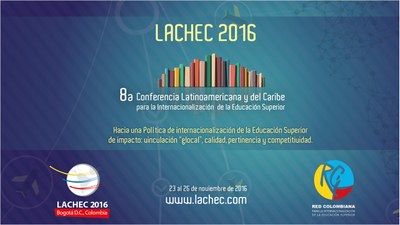Science and education in Latin America and the Caribbean towards an international impact
15/12/2016
European cooperation in research and innovation with Latin America and the Caribbean (LAC) has a long history, based on common cultural roots and shared interests. This is true for the whole of the European Union and for Italy which over the years have invested in strengthening relations, both in terms of development cooperation and innovative research projects.
 The EU and member states, including Italy, signed recently the EU Trust Fund for Peace in Colombia, another important step for the country’s cohesion that will include innovative projects in agriculture, renewable energy and sustainable development.
The EU and member states, including Italy, signed recently the EU Trust Fund for Peace in Colombia, another important step for the country’s cohesion that will include innovative projects in agriculture, renewable energy and sustainable development.
In November, ENEA participated at the th Latin American and Caribbean Higher Education Conference, held in Bogota. The Conference addressed the challenge of formulating a comprehensive and harmonious internationalization policy at the governmental and institutional levels to allow LAC to deal with the increasingly complex and demanding global context, by generating an education system with a "think global act local-glocal- " vision while keeping up with international standards of quality.
The Conference covered three major and complementary topics:
- Internationalization as a promoter of change in society: key elements for policy making
- Quality, visibility and assessment
- Policy making in the internationalization of higher education
The conference described internationalization as an essential aspect for every institution to negotiate in a global environment; it provides better education and research outputs, and in general better services for society. An internationalization process in any institution must be considered as a long term goal to be continuously implemented, not a periodical single action. Thus related actions must be sustainable, and provide resources over time, also considering the feedback for the country. This is to avoid sudden program cuts or a `brain drain’ due to a lack of opportunities for qualified workers in the country of origin.
Despite the geopolitical heterogeneity of the area, with states ranging from sub-continental Brazil to small Caribbean islands, and with different economic profiles over time, the LAC region has approximately 600 million inhabitants with a fair homogeneity of languages. This represents a great human capital for Universities and Research Institutes and a good opportunity to foster regional collaboration, as well as strengthen collaborative relations in science and education with partners in North America and Europe.
A key message of the conference was that a policy of internationalization must be coherent with the necessities of the societies that implement it, i.e. `glocal’. The approach to a new broader vision of internationalization must therefore remained grounded in reality and maintain a commitment to the immediate social challenges.
Link to the LACHEC 2016: the 8th Latin American and the Carribean Higher Education Conference Video Summary
Author Domenico De Martinis, International Relations, domenico.demartinis@enea.it
